Festival wrap-up
Auckland Writers and Readers Festival 2007
The theme of Auckland Writers and Readers Festival ’07 was “Lives”. As a theme it’s very appropriate considering it seems more than one will be necessary to get though the ever-lengthening list of books written, recommended and mentioned by featured writers, books that now just have to be read.
Children’s writer Philip Ardagh was the stand-out entertainer of the festival as far as presentation went. Extremely tall with a manically energetic style he appeared with his own sweat towel and a bag of props he proceeded to make very good use of. Ardagh claimed the reason he’s so good at writing is he’s absolute rubbish at everything else. Initially a non-fiction writer his first fiction book was Awful end, set in the time of Queen Victoria and based on a series of letters written to his nephew at boarding school. In his anxiety to avoid the type of letters received from his own mother when he was at school of the “I’m fine. I took the dog for a walk. I did the shopping. It rained” variety he made them exciting enough to turn into a book requiring no re-writing. According to Ardagh the first edition had to have special equipment made to print his name small enough; after 18 re-printings his name was gratifyingly large but still unreadable. He’s gone on to become an extremely successful children’s author, even collaborating on a book with Sir Paul McCartney. Some may quibble with that as a mark of success but as Ardagh said: “he was a Beatle”.
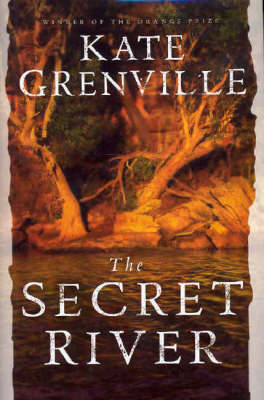 Kate Grenville is an Orange prize-winner and best-selling author who has written some modern Australian classics, although she confessed to suffering from “ imposter syndrome”, claiming she is not really a novelist as her books are given to her by the world. At the festival she talked about two books that have become the same experience; the novel The secret river and the non-fiction book she wrote about the process of writing it, Searching for the secret river. Grenville set out to write the story of her great- great- great- grandfather who was transported to Australia with his family and came to own land on the Hawkesbury River. She wanted to tell the story of what it was like for ordinary people pushed into extraordinary situations - moment to moment and person to person. By her own estimate she did an ‘insane’ amount of research, it took five years and 20 drafts and she turned into the crazy expert that historical novelists sometimes hear from when they get things wrong.
Kate Grenville is an Orange prize-winner and best-selling author who has written some modern Australian classics, although she confessed to suffering from “ imposter syndrome”, claiming she is not really a novelist as her books are given to her by the world. At the festival she talked about two books that have become the same experience; the novel The secret river and the non-fiction book she wrote about the process of writing it, Searching for the secret river. Grenville set out to write the story of her great- great- great- grandfather who was transported to Australia with his family and came to own land on the Hawkesbury River. She wanted to tell the story of what it was like for ordinary people pushed into extraordinary situations - moment to moment and person to person. By her own estimate she did an ‘insane’ amount of research, it took five years and 20 drafts and she turned into the crazy expert that historical novelists sometimes hear from when they get things wrong.
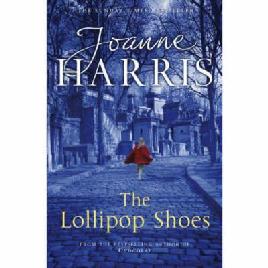 Joanne Harris had not visited New Zealand since Chocolat was released so it was appropriate that she was back to talk about The lollipopshoes, her latest book featuring some of the same characters as Chocolat. Harris’ charming professionalism must be the result of the enormous number of book events she seems to do four events in four nights in New Zealand and then onto Sydney. The lollipop shoes is like “high noon with witches” and features her favourite of all the villains Harris has created a woman who sounds like Mary Poppins but ends up as Cruella de Ville. It’s a darker story set at the turn of the year between Halloween and Christmas and is in the tradition of the dark fairy tale story of magic and fantasy. Harris herself was not sure what was going to happen in the story right until the end.
Joanne Harris had not visited New Zealand since Chocolat was released so it was appropriate that she was back to talk about The lollipopshoes, her latest book featuring some of the same characters as Chocolat. Harris’ charming professionalism must be the result of the enormous number of book events she seems to do four events in four nights in New Zealand and then onto Sydney. The lollipop shoes is like “high noon with witches” and features her favourite of all the villains Harris has created a woman who sounds like Mary Poppins but ends up as Cruella de Ville. It’s a darker story set at the turn of the year between Halloween and Christmas and is in the tradition of the dark fairy tale story of magic and fantasy. Harris herself was not sure what was going to happen in the story right until the end.
Pico Iyer has travelled the world looking for the nuances of cultural interaction and attempting to capture them in his writing. He finds the physical aspect of travel the least interesting, preferring to write about travel in a wider sense, as an alien arriving on the doorstep. Video night in Kathmandu and Sun after dark are not about the world as wholly East or wholly West but as something wholly new, a place where people construct their homes inside themselves. Iyer had visited a book festival in New York a few weeks previous to the Auckland festival and was amazed at the venue and the crowds here in New York small crowds attended events in high school gymnasiums while in Auckland he attracted hundreds of eager readers (and queues of book buyers) at 9.30 on a Saturday morning.
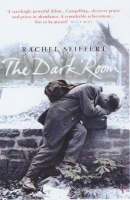 Rachel Seiffert had a start to her writing career that should give heart to aspiring writers everywhere. Living in Scotland in the wake of the success of Trainspotting she wanted to be a film editor but after getting a film made decided she preferred writing and studied it at Glasgow University. After completing her first novel, The dark room, she got a list of agents out of the Artist’s and Writer’s Handbook, sent the novel away, had it accepted and it was nominated for the Booker Prize. It sold so well that she didn’t have to work apart from writing, moved to Germany where she completed a book of short stories and is now at work on her new novel. It’s a book about secrets and love but also about the psychological effects of war on a young man. Writers seeking Seiffert’s success should perhaps take up knitting she is an obsessive knitter and puts three or four adjectives in her first draft then sits and knits and knits until she knows which ones to take away.
Rachel Seiffert had a start to her writing career that should give heart to aspiring writers everywhere. Living in Scotland in the wake of the success of Trainspotting she wanted to be a film editor but after getting a film made decided she preferred writing and studied it at Glasgow University. After completing her first novel, The dark room, she got a list of agents out of the Artist’s and Writer’s Handbook, sent the novel away, had it accepted and it was nominated for the Booker Prize. It sold so well that she didn’t have to work apart from writing, moved to Germany where she completed a book of short stories and is now at work on her new novel. It’s a book about secrets and love but also about the psychological effects of war on a young man. Writers seeking Seiffert’s success should perhaps take up knitting she is an obsessive knitter and puts three or four adjectives in her first draft then sits and knits and knits until she knows which ones to take away.
Lionel Shriver goes back and forth between Britain and America, fascinated by the contrasts between the two countries; contrasts she feels she has a right to comment on.She stepped on a few toes with The post-birthday world, her latest book, and reviewers have been less than kind in Britain but laudatory in the U.S. Shriver described herself as an ‘architectural’ writer, probably because she has worked extensively as a journalist and the skills she honed writing for publications like the Wall Street journal are not inapplicable to fiction.
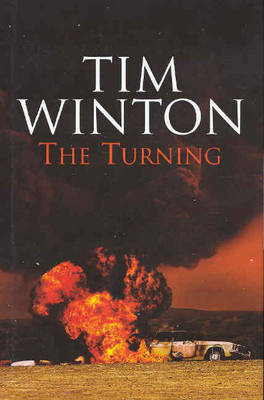 Tim Winton got one of the biggest crowds to his individual session and was a highlight of the festival. The accolades pile up but this guy has made being humorously self-effacing into an art form. He’s a living treasure, The riders was nominated for the Booker Prize (it won the Commonwealth), Cloudstreet won the Miles Franklin and has been voted most popular Australian novel and The turning, his latest, has sold 100,000 copies, unheard of for a book of short stories. “You’re making it sound like I’ve already pegged it” was his response to this list of achievements and “I thought my job was just to write them” to questions about his work. Despite his down-to-earth attitude Winton addresses the spiritual and metaphysical in his work and is not afraid of Christian imagery, perhaps unsurprisingly as he grew up in a family of fundamentalist converts. As a Pantheist who finds nature sacramental, he is “up to his freckle in various causes” to do with the environment and his books reflect a passionate concern for the land and its people. Cloudstreet is an elegy for Perth and Freemantle before water shortages, written in Europe and shot through with nostalgia and longing. The riders is a look at the problems created by men who have been trained to act, not to contemplate and are therefore unable to wait. It’s been called a furious novel but Winton says he was looking at one man, not responding to current ideological feelings. Dirt Music took seven years to write and came in at 1200 pages, on the day it was due he decided he hated it and re-wrote it in 55 days.
Tim Winton got one of the biggest crowds to his individual session and was a highlight of the festival. The accolades pile up but this guy has made being humorously self-effacing into an art form. He’s a living treasure, The riders was nominated for the Booker Prize (it won the Commonwealth), Cloudstreet won the Miles Franklin and has been voted most popular Australian novel and The turning, his latest, has sold 100,000 copies, unheard of for a book of short stories. “You’re making it sound like I’ve already pegged it” was his response to this list of achievements and “I thought my job was just to write them” to questions about his work. Despite his down-to-earth attitude Winton addresses the spiritual and metaphysical in his work and is not afraid of Christian imagery, perhaps unsurprisingly as he grew up in a family of fundamentalist converts. As a Pantheist who finds nature sacramental, he is “up to his freckle in various causes” to do with the environment and his books reflect a passionate concern for the land and its people. Cloudstreet is an elegy for Perth and Freemantle before water shortages, written in Europe and shot through with nostalgia and longing. The riders is a look at the problems created by men who have been trained to act, not to contemplate and are therefore unable to wait. It’s been called a furious novel but Winton says he was looking at one man, not responding to current ideological feelings. Dirt Music took seven years to write and came in at 1200 pages, on the day it was due he decided he hated it and re-wrote it in 55 days.
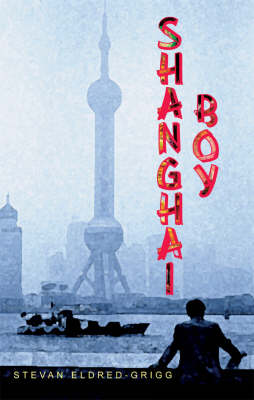 Two outstanding panel sessions looked at two very different fiction genres. Stick to the facts why don’t you attracted a very respectable audience for 9.30 a.m. on a Saturday, perhaps reflecting the popularity of historical fiction as a genre. A group of confident and highly opinionated panellists talked about whether writers of historical fiction have a moral duty to honour veracity or may they regard history merely as inspiration? Stevan Eldred-Grigg, wearing two hats as historian and as writer of Oracles and Miracles, one of New Zealand’s top-selling novels ever, was in no doubt. “Morality and duty are the enemies of fiction”, although he does make his fiction honour veracity.Oracles and Miracles started out as an oral history but got high-jacked by emotion as he interviewed his mother and aunts. Eldred-Grigg’s latest novel, Shanghai boy, is about how today becomes tomorrow overnight as the moment something is written it becomes history, especially in China where he lived for two years.
Two outstanding panel sessions looked at two very different fiction genres. Stick to the facts why don’t you attracted a very respectable audience for 9.30 a.m. on a Saturday, perhaps reflecting the popularity of historical fiction as a genre. A group of confident and highly opinionated panellists talked about whether writers of historical fiction have a moral duty to honour veracity or may they regard history merely as inspiration? Stevan Eldred-Grigg, wearing two hats as historian and as writer of Oracles and Miracles, one of New Zealand’s top-selling novels ever, was in no doubt. “Morality and duty are the enemies of fiction”, although he does make his fiction honour veracity.Oracles and Miracles started out as an oral history but got high-jacked by emotion as he interviewed his mother and aunts. Eldred-Grigg’s latest novel, Shanghai boy, is about how today becomes tomorrow overnight as the moment something is written it becomes history, especially in China where he lived for two years.
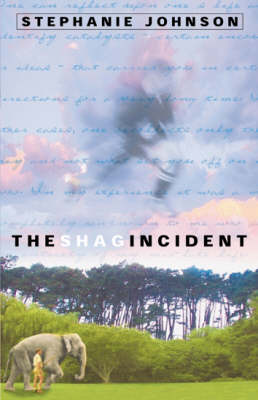 Stephanie Johnson thinks that novelists are “born liars, the lot of us” but she also honours veracity in her obsessions with train timetables and the correct details of cooking and corsets. For her, history comes in handy for satire, but while she takes the mickey out of everyone the truth is important. In The whistler, a lapdog witnesses history from the vantage point of the laps he sits on. In The shag incident Johnson revisits more recent history using a true incident of feminist vigilante action taken against a University lecturer. In John Tomb’s head she played fast and loose with the truth” to look at how the past shapes the present and what we hold dear.
Stephanie Johnson thinks that novelists are “born liars, the lot of us” but she also honours veracity in her obsessions with train timetables and the correct details of cooking and corsets. For her, history comes in handy for satire, but while she takes the mickey out of everyone the truth is important. In The whistler, a lapdog witnesses history from the vantage point of the laps he sits on. In The shag incident Johnson revisits more recent history using a true incident of feminist vigilante action taken against a University lecturer. In John Tomb’s head she played fast and loose with the truth” to look at how the past shapes the present and what we hold dear.
If history wasn’t about facts we wouldn’t need historians, according to Kate Grenville. She set out to take her ancestor Solomon Wiseman and to use him as a representative Australian settler but after everything she thought was a ‘fact’ evaporated Grenville turned his story into The secret river, a novel about the frontier and imperialism in Australia. Growing up at a time when Aborigines were erased from history she felt a strong moral imperative to make sure people knew what had happened to them and a passion to make the journey real. This passion for making the process of how she created the story transparent lead Grenville to write another entire book about it, Searching for the secret river.For her, what characters are eating off and with and what holds their pants up are important questions. Lighting a slush lamp created by using the thread off a frayed towel (she did express some concern at admitting to having frayed towels) as a wick in a saucer of lamb fat told her more about what it was really like to be in a tiny circle of light in a little hut in the vast expanse of Australia in the 19th century than years of research.
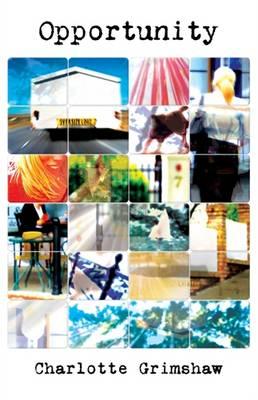 Let’s have the whole (short) story looked at a slightly less popular genre but one that many writers begin with. Carl Nixon and Charlotte Grimshaw, the two New Zealanders on the panel, were both successfulin the Sunday Star-Times Short Story Competition, encouraging them to continue with the form although publishers tend to be wary of it. The trend to collections where the same characters walk in and out of the stories may be a response to this but it’s not new; as Tim Winton pointed out Hemingway had the Nick Adams stories and both Fitzgerald and Balzac used the linked story. Winton’s The turning came about by accident after he had been writing about the same town, milieu and people for 25 years.The stories in Grimshaw’s collection Opportunity are connected but for her the trick is to make sure they can stand alone. Nixon’s Fish and chip shop song features stories written over an eight year period with varying ideas and styles, some of which had to be thrown out. All the panellists agreed that the form has its demands. It is harder, more concentrated, structured and economical and there is an art to shaping it.
Let’s have the whole (short) story looked at a slightly less popular genre but one that many writers begin with. Carl Nixon and Charlotte Grimshaw, the two New Zealanders on the panel, were both successfulin the Sunday Star-Times Short Story Competition, encouraging them to continue with the form although publishers tend to be wary of it. The trend to collections where the same characters walk in and out of the stories may be a response to this but it’s not new; as Tim Winton pointed out Hemingway had the Nick Adams stories and both Fitzgerald and Balzac used the linked story. Winton’s The turning came about by accident after he had been writing about the same town, milieu and people for 25 years.The stories in Grimshaw’s collection Opportunity are connected but for her the trick is to make sure they can stand alone. Nixon’s Fish and chip shop song features stories written over an eight year period with varying ideas and styles, some of which had to be thrown out. All the panellists agreed that the form has its demands. It is harder, more concentrated, structured and economical and there is an art to shaping it.
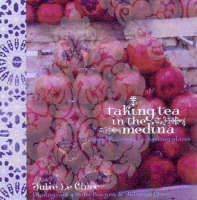 Buy champagne, pour tea, cook rice, write bestsellertick was another panel session featuring three women who had done all of the above. They gave a very entertaining look at loving food, eating food and writing about food. Sarah Kate Lynch loves it and writes fiction about it but never cooks it ("that's what husbands are for"), while Julie le Clerc and Janet de Neefe love it, eat it, cook it and help other cooks via their recipe books. De Neefe's Fragrant rice is a memoir with recipes, the story of her love affair with Bali and her life there with her Indonesian husband. Le Clerc has been cooking and writing about food for years - in fact one heart-felt question at the end of the session concerned where to find the sticky buns she used to sell in her Wellington café (in The café collection was the answer) - and her latest book, Taking tea in the Medina, features flavours she has always loved. Lynch's food hero is the aforementioned husband, who cooks breakfast, lunch and tea in their house while she conducts research for novels such as The house of Peine, about a French champagne house, by being hosted by Moet et Chandon in a French chateau. After all, someone has to.
Buy champagne, pour tea, cook rice, write bestsellertick was another panel session featuring three women who had done all of the above. They gave a very entertaining look at loving food, eating food and writing about food. Sarah Kate Lynch loves it and writes fiction about it but never cooks it ("that's what husbands are for"), while Julie le Clerc and Janet de Neefe love it, eat it, cook it and help other cooks via their recipe books. De Neefe's Fragrant rice is a memoir with recipes, the story of her love affair with Bali and her life there with her Indonesian husband. Le Clerc has been cooking and writing about food for years - in fact one heart-felt question at the end of the session concerned where to find the sticky buns she used to sell in her Wellington café (in The café collection was the answer) - and her latest book, Taking tea in the Medina, features flavours she has always loved. Lynch's food hero is the aforementioned husband, who cooks breakfast, lunch and tea in their house while she conducts research for novels such as The house of Peine, about a French champagne house, by being hosted by Moet et Chandon in a French chateau. After all, someone has to.


